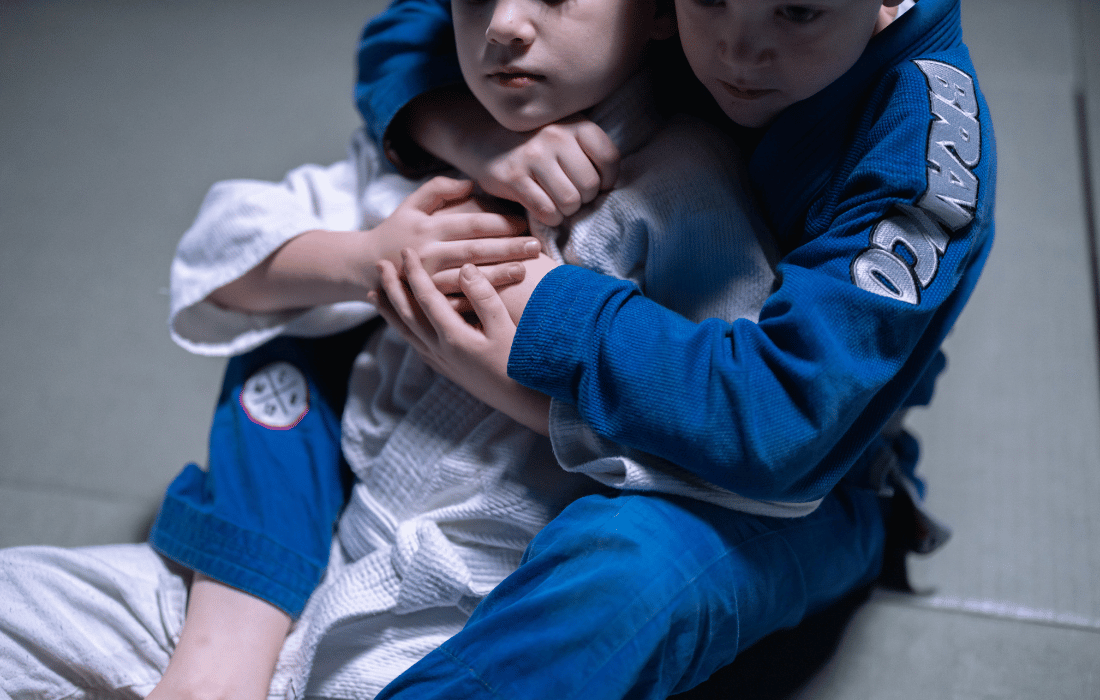Martial arts are often associated with self-defense, a vital skill in today’s world. However, the true essence of martial arts like Brazilian Jiu-Jitsu, Wrestling, and Muay Thai goes far beyond the ability to defend oneself. These disciplines impart invaluable life lessons in discipline, hard work, perseverance, and sacrifice. For children and adults alike, martial arts can be a transformative experience, instilling values that shape character and influence all aspects of life.
Discipline: The Foundation of Success
Discipline is a cornerstone of martial arts. In Brazilian Jiu-Jitsu (BJJ), for example, students quickly learn that success on the mat is directly tied to their level of commitment and discipline. Regular training, often several times a week, requires a structured routine that extends into other areas of life. Whether it’s adhering to a healthy diet, maintaining physical fitness, or balancing training with work and family responsibilities, the discipline cultivated in martial arts is universally applicable.
Consider the story of a young wrestler named Jake. As a high school student, Jake struggled with time management and focus. However, when he joined the wrestling team, he was introduced to a regimented training schedule. Early morning practices, evening workouts, and weekend tournaments became part of his routine. Over time, Jake’s grades improved, he developed better study habits, and he even took on leadership roles in other school activities. The discipline he learned through wrestling helped him excel academically and socially.
Hard Work: No Substitute for Effort
Martial arts demand hard work and dedication. Unlike some activities where natural talent can carry an individual far, martial arts require continuous effort and improvement. In Muay Thai, for example, fighters spend countless hours perfecting their strikes, conditioning their bodies, and learning complex techniques. This relentless pursuit of improvement teaches practitioners the value of hard work.
A real-world example is the journey of Angela Lee, a mixed martial artist and the youngest person to win a world title in ONE Championship history. Angela’s success didn’t come overnight; it was the result of years of intense training and unwavering commitment. Her story is a testament to the principle that hard work, combined with passion and perseverance, leads to extraordinary achievements.
Perseverance: Overcoming Adversity
Martial arts are a microcosm of life, filled with challenges, setbacks, and moments of doubt. Brazilian Jiu-Jitsu, in particular, teaches the importance of perseverance. The art of BJJ involves grappling and ground fighting, where students often find themselves in uncomfortable and seemingly insurmountable positions. Learning to remain calm, strategize, and persist until finding a way out mirrors the challenges faced in everyday life.
Take the story of John Danaher, one of the most renowned BJJ coaches. Despite suffering from a debilitating knee injury that ended his competitive aspirations, Danaher turned to coaching. His perseverance and innovative approach to teaching have produced some of the best grapplers in the world, including Gordon Ryan and Garry Tonon. Danaher’s journey underscores that setbacks can be stepping stones to greater success.
Sacrifice: The Path to Mastery
Mastery in martial arts requires sacrifice. This might mean giving up leisure time, enduring physical pain, or making financial investments in training and equipment. Wrestling, for example, is notorious for its grueling practices and the demands it places on athletes. Wrestlers often have to cut weight, which involves strict dieting and intense workouts to meet competition requirements.
One notable example is Kyle Dake, a four-time NCAA Division I National Champion in wrestling. Dake’s journey to the top involved numerous sacrifices, including rigorous training sessions, dietary restrictions, and limited social life. His story highlights that achieving greatness often requires sacrificing short-term comforts for long-term goals.
Building Confidence and Self-Esteem
Martial arts significantly boost confidence and self-esteem. As practitioners progress and achieve milestones, they develop a sense of accomplishment and self-worth. For children, this is particularly important. The confidence gained from martial arts can help them navigate social challenges, resist peer pressure, and develop a positive self-image.
Consider a young girl named Emily who struggled with shyness and low self-esteem. Her parents enrolled her in a Muay Thai class to help build her confidence. Over time, Emily’s skills improved, and so did her self-assurance. She began to speak up more in class, make new friends, and participate in other activities with enthusiasm. The confidence she gained from martial arts spilled over into all areas of her life.
Respect and Humility
Respect and humility are integral values in martial arts. Whether bowing to a sensei in Jiu-Jitsu, shaking hands with an opponent in wrestling, or showing respect to a trainer in Muay Thai, these practices teach individuals to appreciate the skills and efforts of others. Respect for instructors, peers, and even oneself is a fundamental lesson that martial arts impart.
A great example is the culture of respect in Muay Thai, also known as the “Art of Eight Limbs.” Fighters perform a traditional dance, the Wai Kru Ram Muay, before a match to show respect to their trainers, opponents, and the sport itself. This tradition emphasizes that martial arts are not just about fighting but also about honoring the discipline and those who practice it.
Community and Camaraderie
Martial arts foster a strong sense of community and camaraderie. Training partners often become close friends, providing support and motivation both on and off the mat. This sense of belonging can be particularly beneficial for children, offering them a positive social environment and a network of supportive peers.
For instance, the wrestling team at a local high school often becomes like a second family to its members. Team members push each other during practice, celebrate victories together, and offer support during tough times. This camaraderie extends beyond the mat, creating lifelong friendships and a supportive community.
Physical and Mental Health Benefits
The physical benefits of martial arts are well-known. Improved cardiovascular health, increased strength, flexibility, and coordination are just a few of the physical advantages. However, the mental health benefits are equally significant. Martial arts can reduce stress, improve focus, and promote a sense of well-being.
A study published in the Journal of Sports Science and Medicine found that participants in a Brazilian Jiu-Jitsu program reported significant reductions in stress and anxiety. The physical exertion and mental focus required in martial arts provide a healthy outlet for stress and contribute to overall mental health.
Lifelong Learning and Adaptability
Martial arts promote lifelong learning and adaptability. Techniques and strategies are constantly evolving, requiring practitioners to stay curious and open-minded. This mindset of continuous improvement and adaptability is valuable in all areas of life.
The legendary martial artist Bruce Lee epitomized this philosophy with his famous quote, “Be water, my friend.” Lee believed in the importance of being adaptable and fluid, both in martial arts and in life. His approach to martial arts, which combined elements from various disciplines, demonstrated the value of lifelong learning and the ability to adapt to new situations.
Conclusion
Martial arts like Brazilian Jiu-Jitsu, Wrestling, and Muay Thai offer much more than self-defense skills. They are a profound journey of personal growth, teaching discipline, hard work, perseverance, and sacrifice. The lessons learned on the mat extend into all areas of life, helping individuals build confidence, respect, humility, and a sense of community. The physical and mental health benefits further enhance the holistic development of practitioners.
Whether you are a parent looking to instill these values in your child or an adult seeking personal growth, martial arts provide a transformative experience. Embracing the challenges and rewards of martial arts can lead to a richer, more fulfilling life. So, step onto the mat and embark on a journey that goes far beyond self-defense.







